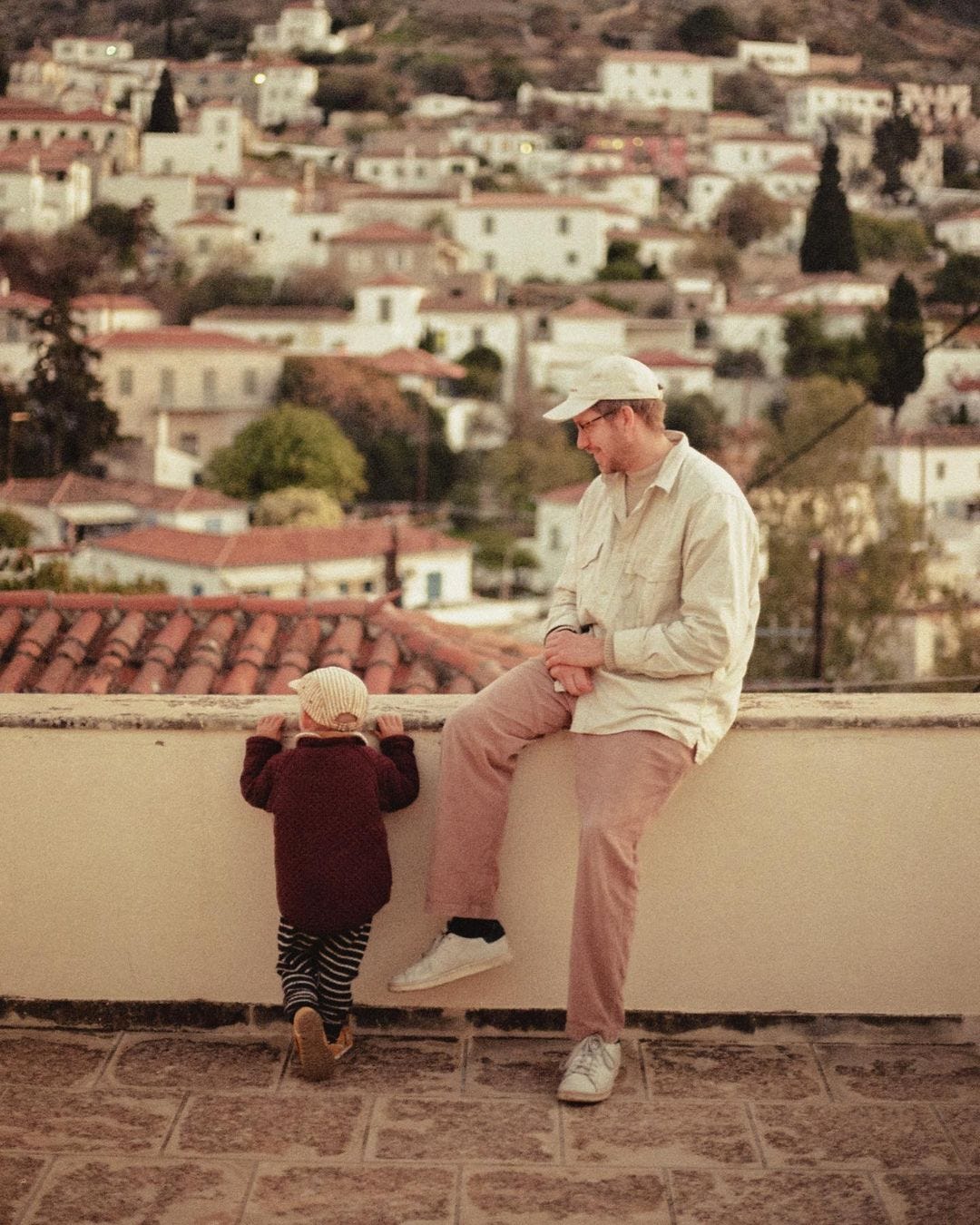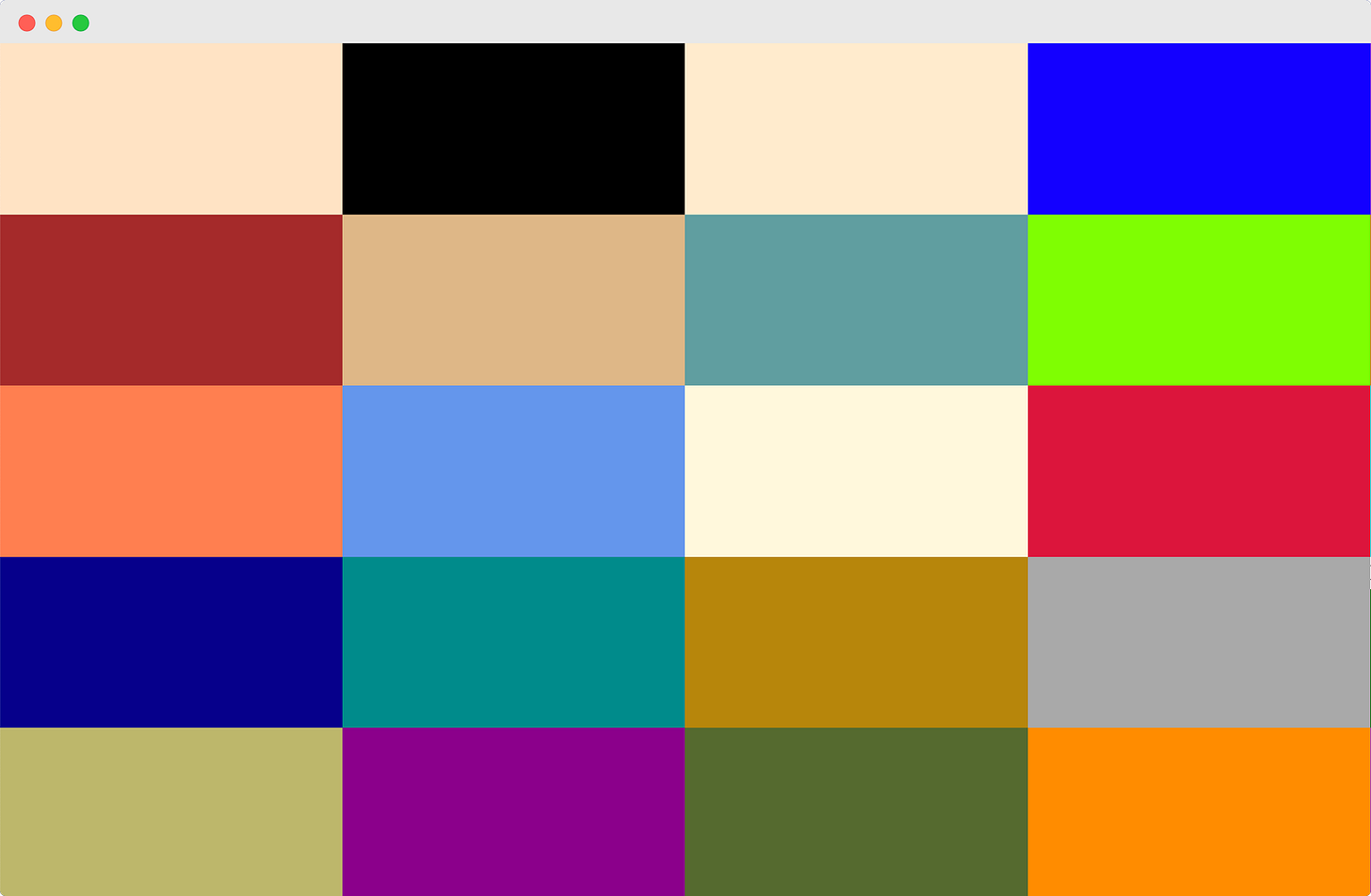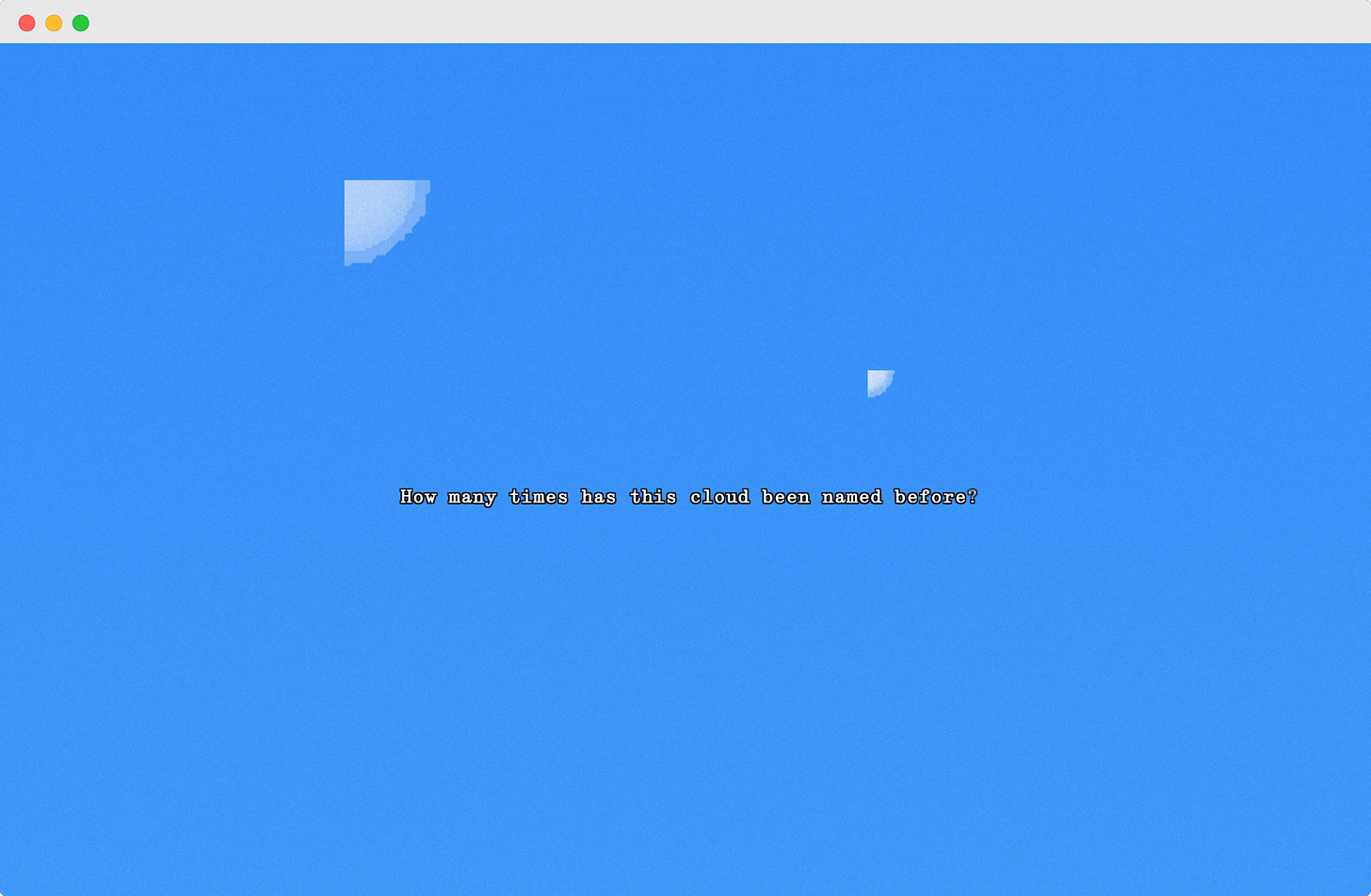2.5
Giueseppe Sollazzo's Wilderness Land
Another Week, Another Newsletter — Observations From The Internet Wilderness.
Dear reader
It took 1.5 days to travel home from Mauritius, including a 12 hours flight to Frankfurt. Uno was probably the happiest person on the plane. He loves traveling, and the plane was dressed in stripes like him.
On the plane, Uno turned 2.5 years. We no longer count his age in days or months, but 30 months looks like a lot. And although it felt like yesterday that we carried him out of the hospital in a car seat, it is impossible to ignore that he is no longer a baby as he sings in three languages and runs off to the horizon.
With care
Kristoffer
Roadside Flowers
Paints is a drawing tool for Max.
Salmon Olive is a HTML color sorter.
Cloud Watching is collective gazing.
Field Notes
Read JPEG
This is a screenshot garden but as a newsletter. The concept is simple, but this is an advantage when the execution feels like putting your feet into well-fitting shoes: you are ready to follow the images anywhere and arrive satisfied at your destination.
“Curated streams on contemporary culture. Image essays. Subject matter varies. No text. Just images. Click–throughs for surprise. Mailed irregularly by the zip.” — Read JPEG
Between Flesh: Tech Degrees of Separation
I believe we’ll be reading much more of Maya Indira Ganesh’s writings in the coming years. She travels confidently through literary history and effortlessly jumps between different silos of research. Here she calls for a less binary internet full of flesh and (female) desire.
““To speak is to leak,” says Sara Ahmed, and the leak is shameful, be it blood, urine, sweat, or data. Coding Rights, a Brazilian feminist collective, urges us to leak confidently, sexily, with complete knowledge of the affordances of the machine that fosters shame.” — Maya Indira Ganesh
Wilderness Land ft Giuseppe Sollazzo
Giuseppe Sollazzo loves cheesemaking, sings in a choir and is the Deputy Director in the AI Lab at NHSX. In his weekly newsletter, he uncovers the web of data. It is a pleasure to have him extend the Wilderness Land.
K: What data do you wish existed?
Giuseppe: I was part of a team that advised the UK Government on which datasets to prioritise for public release. We set up a system to allow the public to request the publication of data. The most requested? You’d think something about political intrigue or financial propriety. No: it was the location of public toilets. It was a big eye opener: the data that is most useful to people often does exist but it’s not really available, or it’s not gathered in one dataset. And that’s my dream about data: more cohesive datasets about those mundane everyday problems. Data that is often spread between multiple publishers – in the UK, toilet data is often collected by local authorities – or that whose owner holds behind a prohibitive licensing scheme, like the PAF, the dataset of all addresses in the UK. As a society, I’d like more activism in getting this data “out there”, in a coherent way.
K: Why have you written a newsletter for a decade?
Giuseppe: I struggle to let go of things :-) Jokes aside, I started because I was an avid reader of existing newsletters and I loved the "slow news" approach that was more similar to the early days of the Internet than to the real-time nature of social media. I was intrigued, as a reader of newsletters, from the ability of these publications to be both informative about a theme, but also to convey human warmth, and in some cases a one-to-one relationship with their creator. That's fundamentally why I started, along with the need to do something with the dozens of open tabs on my browser. And I soon realised that a community of engaged readers developed, an ever changing community that reshapes itself as my interests – broadly about data, but certainly developing over time – evolve.
K: How would you explain poetry?
Giuseppe: Poetry to me is the way structure and language conspire to trigger emotions. Although most of the poetry I like is relatively modern and loose metrically, I love rhythm and rhymes, and the fact that there's so much that the metric form of poetry can convey by purely syntactic pleasure. When I was younger, I had a go at writing satyrical poems about people I knew, and soon realised that certain verse lenghts worked better than others. My favourite poet is Eugenio Montale, Nobel Prize for Literature in 1906, who masters this combination of structure and language incredibly effective to convey a sense of nostalgia, "male di vivere", without ever resulting cheesy.
Subscribe to Giuseppe’s newsletter.
Collections
Hi, I’m Kristoffer and you have just read Naive Weekly — Observations from the Internet Wilderness.
Last week this letter was sent to 1378 inboxes. It will always be free for everyone, so I’m keeping it donation-based. Currently, twenty-eight people support me with a paid subscription. Logo by Studio Hollywood. Photograph by Ana Santl.







